Do you think you have a passive aggressive spouse? In this article, we are going to talk about eleven traits of passive aggressive behavior, what is passive anger or passive aggressiveness, and the best things to do when it comes to dealing with passive aggressive people.
Passive aggressiveness is passive anger.
One of my followers has asked me about this recently:
(My partner) was never aggressive, violent, or angry but after doing some research I do believe he was passive-aggressive. So what I am wanting to know is: is passive aggression a form of emotional abuse?
Yes, it is.
Passive aggressiveness is confusing as someone who behaves as this acts passively. But they are covertly aggressive and hostile. Passive aggressiveness is a sign of insecurity. It belies a deep sense of shame and low self-esteem.
A person who is passive aggressive needs to feel dominant and in control. They also need to make others feel inadequate to relieve a feeling of deficiency within themselves.
They can be unreasonable, uncomfortable to be around. They express hostility covertly and use manipulative subterfuge over time. All designed to make you feel insecure, walk on eggshells, and at times, to punish you.
They do this in a number of ways:
Related: 12 Characteristics of Passive Aggression and How To Deal With A Passive-Aggressive Partner
11 Traits of Passive Aggressive Behavior
1) Sarcasm and Teasing
Sarcasm can be humor used as a weapon to hurt you.
Hostile humor that can be disguised as teasing you about your appearance, gender, cultural status or whatever personal to you.
If you get hurt or angry, they’ll say:
“I was just kidding.”
And gaslight you by telling you:
“You’re too sensitive.”
2) Picking Fights
This is where they’ll pick a fight out of thin air. But it will be because of something you’ve said or done they blame as causing them to do this. You’re responsible for their anger.
Or, they’ll be resentful and occasionally let nasty comments slip out.
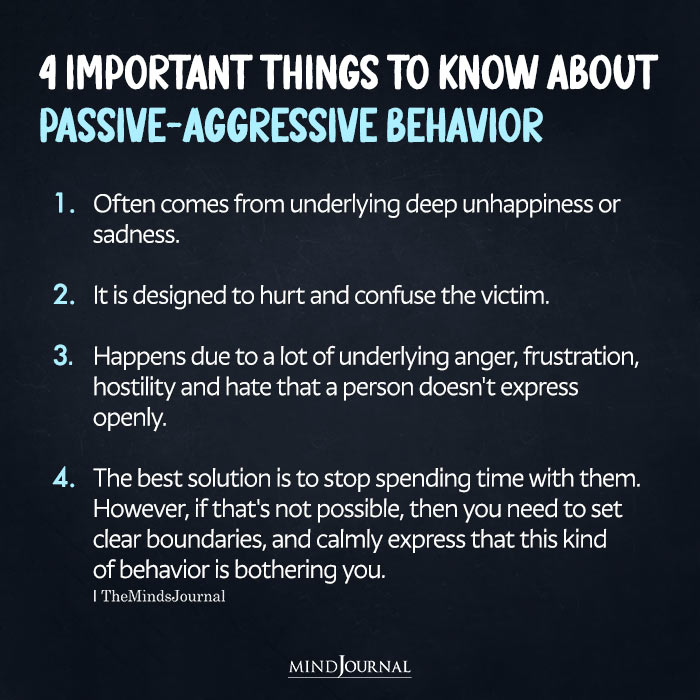
3) The Silent Treatment
This is a form of punishment aimed at creating insecurity within you. It may be sullen resentment. Social exclusion or neglect.
Not speaking to you for days, as punishment for their behavior you may have questioned. So you become the problem, not them. And they avoid accountability for it.
4) Negative Criticism
Negative criticism of anything from your appearance to how you talk. Telling you your friends or family are no good for you.
5) Passive Aggressive Comments
But, then they’ll say:
“I’m only trying to help you. Who else will tell you if I don’t?”
They may say negative things to others about you. Or, address you like a child.
This is all aimed at making you feel inadequate to relieve their own sense of deficiency. For them to feel superior and in control.
Related: Covert Verbal Abuse: Passive Aggressive Behavior That Aims to Control You
6) Psychological Manipulation
Using tactics like gaslighting. Blaming you for their abusive behavior.
Lying to you, then telling you – you’re the one making things up.
Making excuses for their behavior to avoid responsibility for it.
Throwing unexpected things your way to always keep you on eggshells.
Making you feel guilty for their behavior
Holding you responsible for their moods and behavior. Their unhappiness and lack of success.
Expecting you to change your behavior so they don’t have to be accountable for theirs.
7) Stonewalling
This is where they don’t say no. But do everything to block things. There’ll be broken agreements, endless red tape and a lack of follow-through. They’ll keep you thinking progress will be made, but covertly they’ll be stonewalling you.
8) Stubbornness
Where they passively appear to be going along with you, but constantly come up with excuses or reasons why you can’t. Which stalls progress or inhibits you coming to a decision.
9) Secret Subterfuge
This is where they undermine you in any way they can. They’ll ignore deadlines, sabotage projects. Make you look like you’ve failed and you get the blame for it.
Again, this is about making themselves feel good, by crushing your self-esteem encouraging your insecurity.
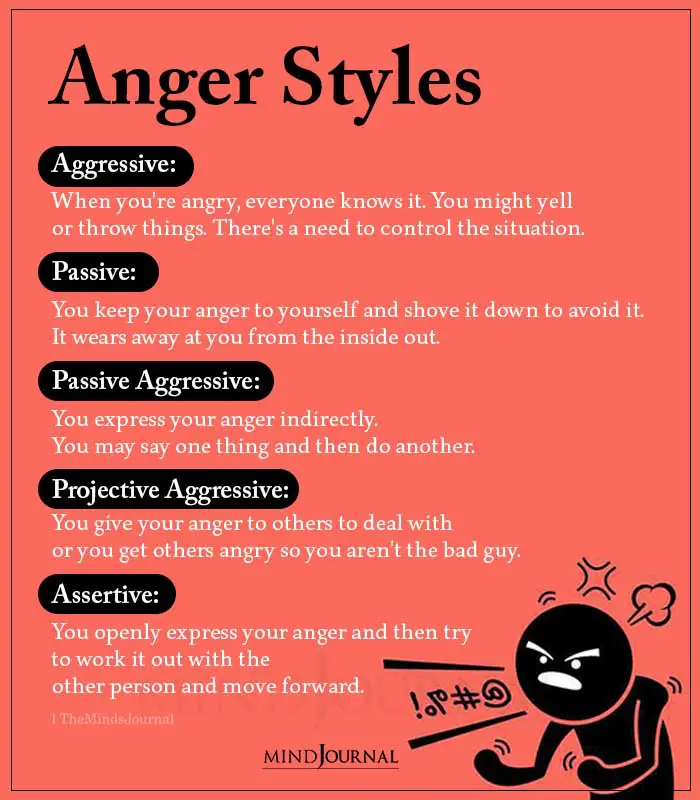
10) Threatening To Hurt Themselves
This is passive aggressive manipulation at its best. Threats such as:
“If you leave me I’ll kill myself?”
The tactic is to teach you a lesson. Saying: I’ll hurt myself to hurt you.
It’s appealing for your sympathy, aimed at making you feel guilty. It’s attention-seeking drama aimed at you and gaining control again.
Related: Responding To A Narcissist’s Silent Treatment
11) Playing The Victim
Narcissists are masters of at playing the victim, especially in their smear campaigns against you.
Making others believe they were the victim of your behavior, not the other way around.
Others play the martyr – not magnanimously, but so they can have control and feel better about themselves.
Victimhood can be a form of co-dependency. Where you have a need to be needed.
Even if the other person rejects your desire to rescue them. Your obsession for fixing them is at the expense of your own needs and wellbeing.
Passive anger
Passive aggressiveness can be frustrating to deal with, as the passive-aggressive person can transfer their inner anger onto you.
They covertly and passively press your buttons and push your boundaries. If you become frustrated and angry they’ll then turn it back on you, asking:
Why are you so angry?
If you’re in a relationship where this behavior is happening then chances are you are codependent.
Their covert manipulation is a form of coercive control and emotional abuse.
By staying there and accepting it you are also enabling them to continue with it.
It’s a form of hidden anger and resentment towards others they seem are more fortunate than they are. They have an exaggerated sense of their misfortune, which they deem to be caused by others.
They can be sullen, argumentative and resentful and it can be so uncomfortable to be around them, it can be easier at times to take the path of least resistance.
Passive aggressiveness can be found in relationships, in the workplace – your colleagues. Even your friends can use passive-aggressive behavior.
Don’t enable this behavior. It’s emotional abuse.
Dealing with passive-aggressive people
The best response is not to engage with any of it. If you nag them, scold them or pull them up for it, then you will most likely be gaslighted anyway. They’ll project their behavior onto you. And unwittingly force you into the parent role, which they can rebel against even more.
The only response is an assertive one. Which is neither passive or aggressive. Don’t blame them or judge them. Take emotions out of it. Simply, describe their behavior and explain the effect it has on you and the relationship in factual terms.
Related: How To Deal With Passive Aggressive People In Your Life
Using words such as:
“When you do X, I feel Y and I believe it would be better for our relationship if instead we try Z.”
It’s all about having strong boundaries, which are key to signalling to them how you expect to be treated.
There are even times when you can find yourself acting passive aggressively. I have.
There was one time when I started to use sarcasm and put-downs to covertly bully my husband. I wasn’t even aware I was doing it at the time.
It was when certain events impacted our relationship and we fell into an unhealthy parent-child dynamic.
Thankfully, I recognized this and that it was coming from a place of insecurity within both of us.
I learned love is a verb, not a noun. To get us back on track I needed to show him I loved him with my actions, not just words.
We both needed to nurture our boundaries, sense of self-esteem and self-worth.
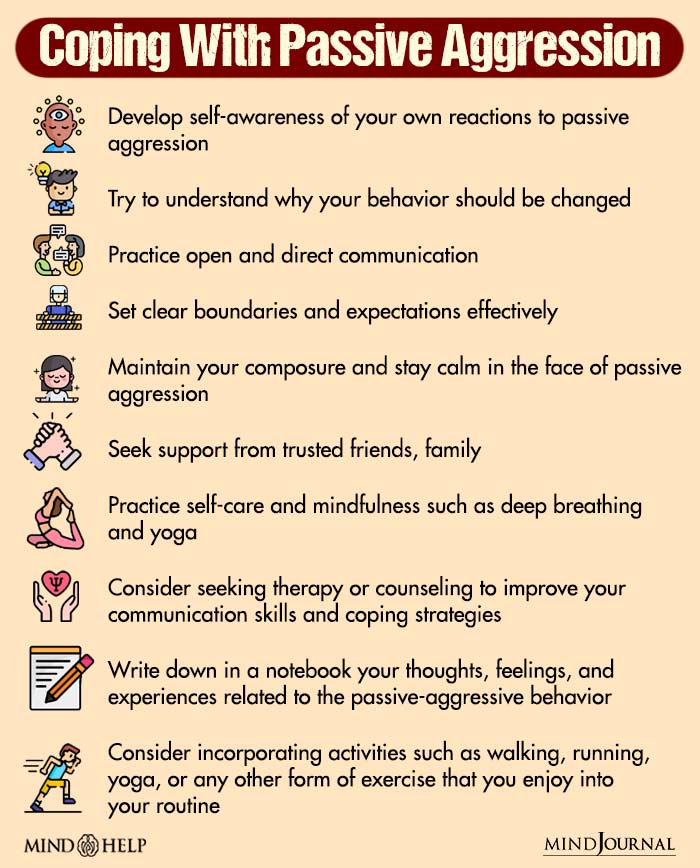
So, back to her question:
Is passive aggressiveness a part of the dynamic? A form of emotional abuse?
The answer is: Yes. In codependent relationships, definitely.
Passive anger or passive-aggressiveness is a form of emotional abuse. Coercive control. It’s aimed at making the other person feel small, so they can feel greater about themselves.
Want to know more about the characteristics of passive aggressive behavior? Check this video out below!
Written by Vivian McGrath Originally appeared on Vivian McGrath Printed with permission from author
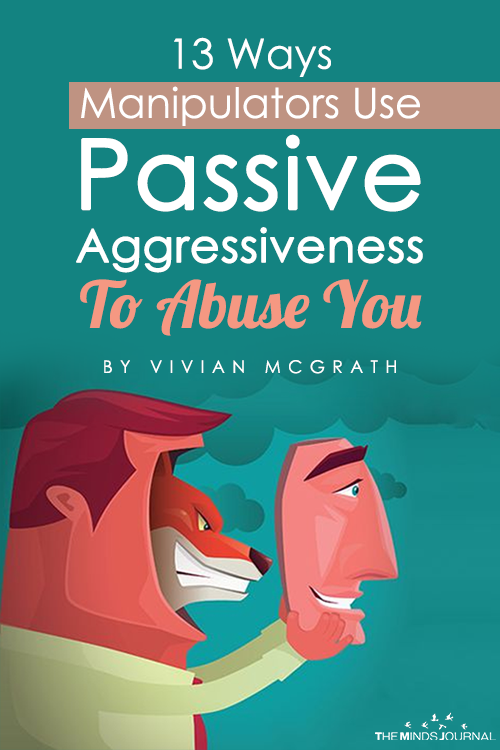
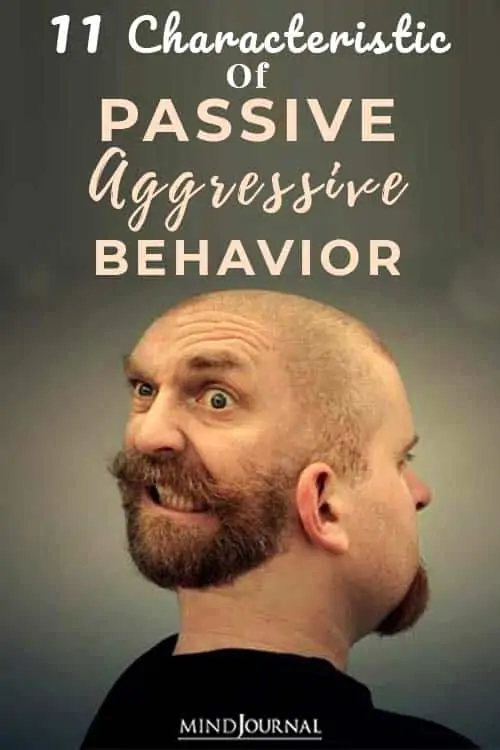
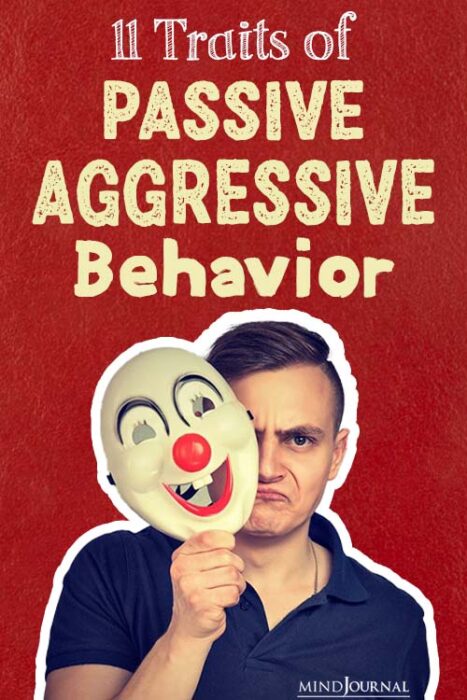
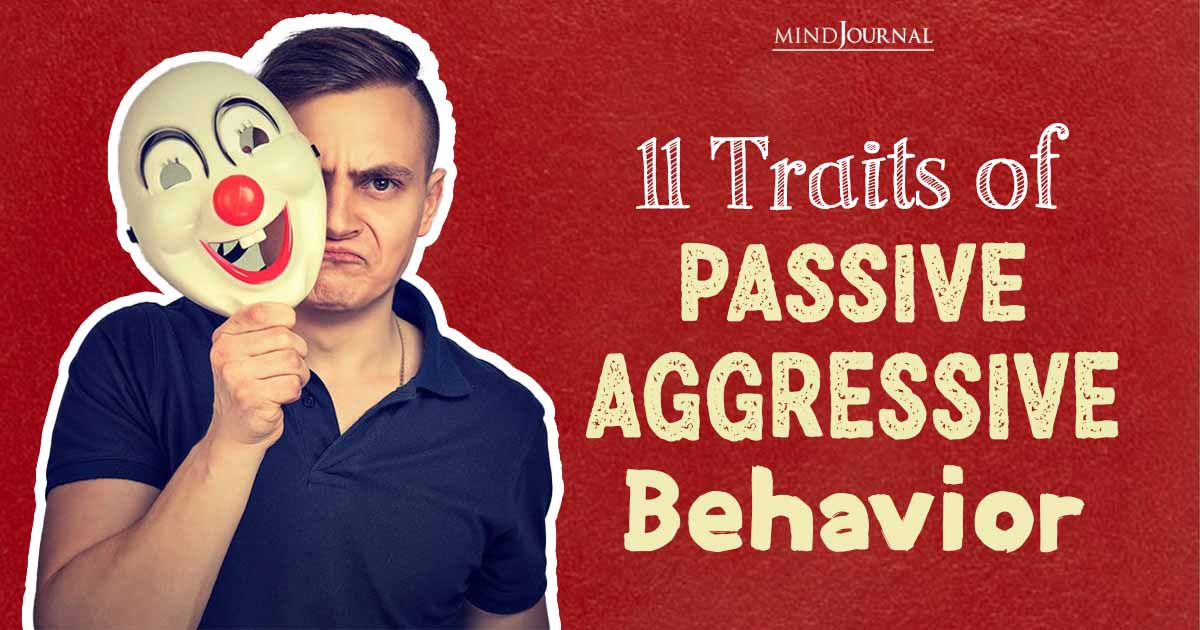







Leave a Reply
You must be logged in to post a comment.